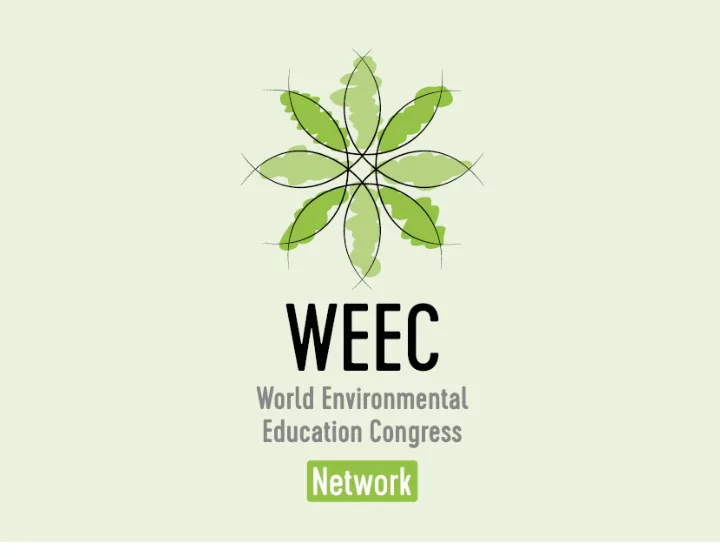

A PLACE FOR SHARING • Researches • Best practices • Ideas • Partnerships • Energies • …
WHY • To build a culture of fair, equitable and ecological sustainability is an enormous and transversal/cross-cutting challenge : “Culture” includes the arts or other manifestations of human intellectual achievement as well as many societal aspects and behaviours (attitudes, beliefs and way of life, languages, customs, values, norms, mores, rules, tools, technologies, products, organizations, and institutions). • The mission of the Environmental education is to clarify the modern socio-environmental and socio-political stakes to provide more adequate and responsible solutions to the problems the humankind has created for itself and for the finite planet all humans belong to.
THE ACTORS Consequently, the aim of the WEECs is to encourage discussion amongst everyone involved in environmental education and sustainability: • universities, institutes and research centres, • public institutions, • local communities, • non-governmental organizations, • schools, • parks, • thematic or territorial networks (local, regional, world-wide), • professional associations, • mass media, • businesses, etc.
A CHALLANGE The topics of environment and sustainability are still not integrated enough into teaching and university research, just as the environment and sustainability have not yet sufficiently penetrated into the practice of the political class throughout the world, into the media, and into the economy, where we need an ecological economics, a green economy and a green society.
In an unsustainable world… Environmental education finds itself working in an “unsustainable” society in which there is dramatically little attention paid to how human actions affect the planet . It is a society in which there is still need of a sufficiently clear and above all a shared social model of eco-compatible lifestyles, hierarchies of values, and criteria for understanding the world. The very concept of “sustainability” itself is in evolution and it can be defined in a number of ways.
…we are evolving And the theoretical references, methodologies, applied sciences and real practices of environmental education are also evolving . It is becoming ever more obvious to our international community of experience and research that environmental education is seeking new ways to interpret human action, the impact this action has on various spheres of life, and the collective choices that determine this impact.
MAIN ISSUES • Climate change • Biodiversity • Responsible use of resources • Pollution effects on the health • The transition to a more ecological and a greener society • An integrated approach to the complexity of our world
THE WEEC NETWORK The worldwide EE network The WEEC network is the most significant existing experience of connecting international level in the field of environmental education. The WEEC Network was born for improving the exchange ideas, experiences and proposals and to spread information about call for papers, events, books, journals, initiatives, campaigns, documents, guidelines and so on, between one congress and the other, to build an international community of research and practice in environmental education and sustainability and to enhance the EE alla over the world . The Permanent Secretariat of WEEC Network is treated by Istituto per l’Ambiente e l’Educazione Scholé Futuro , NGO located in Turin, Italy.
CONTACTS
Recommend
More recommend